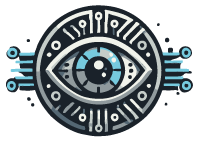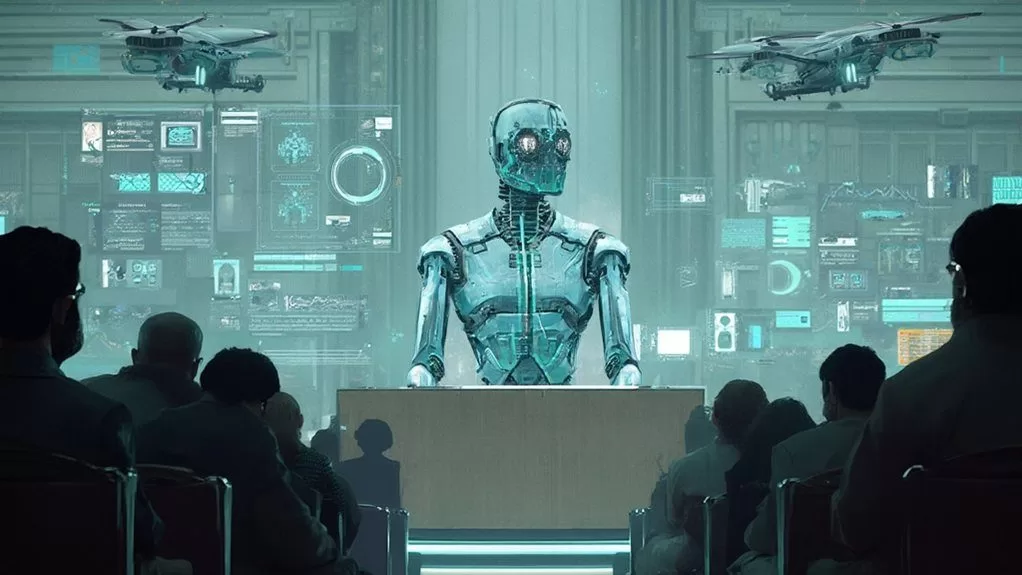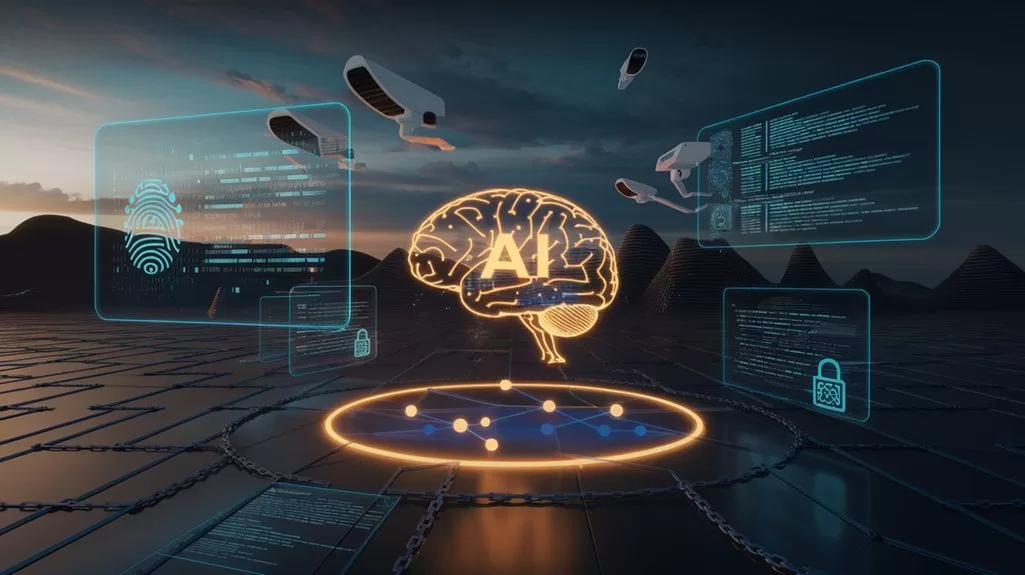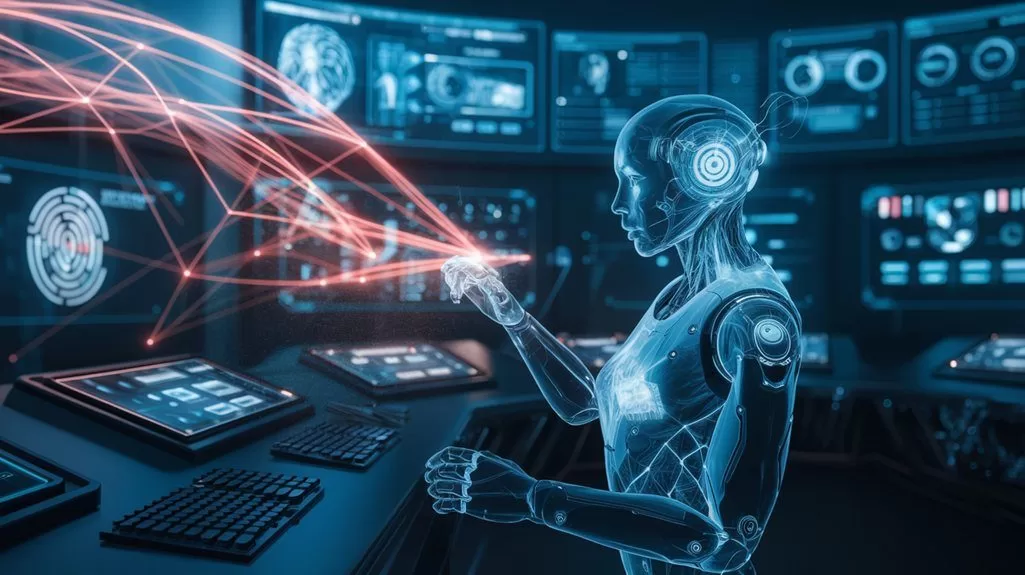Are AI judges the end of traditional justice? Maybe. These systems promise efficiency, reduced bias and consistent rulings. Goodbye, pay and perks! AI judges are cost-efficient, requiring only electricity and an internet connection. But are they the epitome of fairness? Not so fast. AI's black box nature challenges transparency, while ethical and legal hurdles loom large. Sure, some countries are ahead, but questions about oversight and privacy are rampant. There's a lot more to uncover here.
Key Takeaways
- AI judges promise efficiency and cost savings, potentially transforming traditional justice systems.
- The reduction of human bias is a significant claim supporting AI judges' adoption.
- Transparency and accountability issues challenge AI's acceptance in traditional legal systems.
- Legal, ethical, and jurisdictional challenges complicate AI's integration into global legal processes.
- AI judges may complement but are unlikely to entirely replace human judges, preserving traditional justice elements.
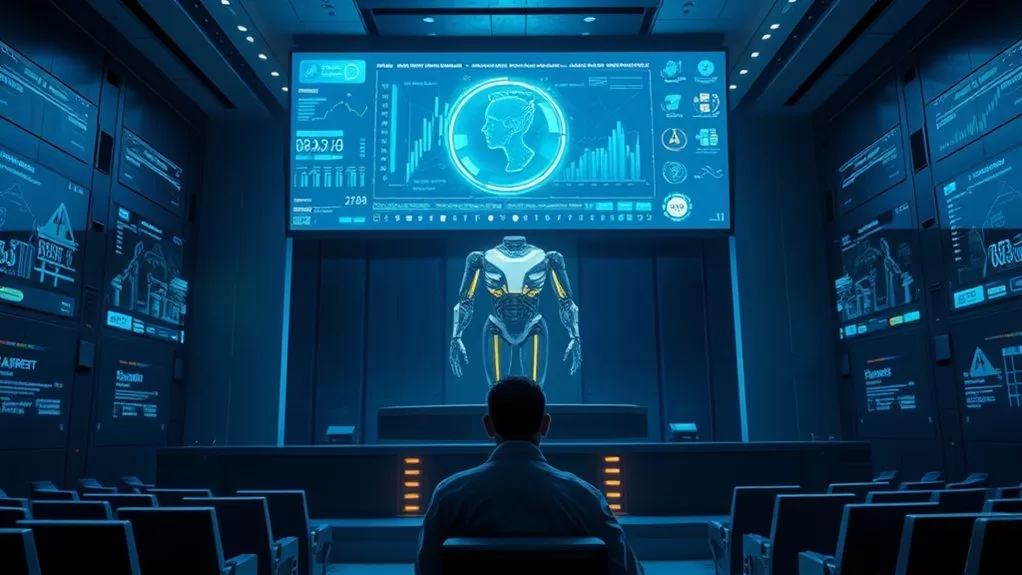
While some might still scoff at the idea of AI judges, the legal world is waking up to a new era where artificial intelligence steps into the courtroom. The promise? Efficiency, reduced bias, and enhanced accuracy. AI judges, defined as systems using artificial intelligence to assist or replace human judges, are poised to revolutionize the judiciary. But can they really guarantee algorithmic fairness and judicial transparency? That's the billion-dollar question. Or maybe trillion-dollar. Who's counting?
AI systems, built on complex algorithms and vast data sets, promise to process and analyze cases swiftly. This could mean quicker decisions, less waiting for justice. Faster than a human judge, who needs lunch breaks. Or sleep. But let's not forget the cost savings. AI doesn't need a salary or a comfy office. Just some electricity and a good internet connection. It's efficiency at its finest. But there's a catch—sometimes these AI systems can go wrong, like a bad plot twist in a courtroom drama. The ethical implications of AI in law have been explored extensively, highlighting both the potential and pitfalls of AI applications in the judicial system. Additionally, concerns about the privacy and consent challenges associated with AI systems in the courtroom mirror those faced by facial recognition technologies.
Bias in human judges? A historical problem. AI, with its data-driven objectivity, claims to reduce this. Decisions based on patterns, not prejudices. On paper, it sounds great. Yet, can a machine truly understand context, the nuances of human emotion? That remains debatable. Some hail AI's potential for more consistent rulings. Others worry it's just another layer of complexity, adding to the mystery of justice.
Then there's the matter of judicial transparency. AI systems must be open and clear. After all, how can the public trust a system they can't see or understand? Transparency is key. If AI is a black box, it's a problem. Trust isn't built on mystery. It's built on openness. And AI accountability? A whole new ball game. Guaranteeing systems are transparent and accountable is essential. But who's watching the watchmen—or the robots, in this case?
Globally, countries like China are leading the charge in integrating AI into their legal processes. It's a brave new world. But not without legal and ethical hurdles. Jurisdictional variations, liability questions, privacy concerns. The list goes on. And on. Legal frameworks need adaptations. Training for future judges is essential. They must be ready for AI-assisted decision-making. It's a revolution—if a slightly terrifying one.
Public trust in AI justice systems hinges on perception. Can the public accept robotic judges? The answer is critical. Transparency and accountability mechanisms are paramount. Without them, AI judges might just remain another sci-fi fantasy. Or a nightmare, depending on who you ask.
References
- https://www.judcom.nsw.gov.au/publications/benchbks/judicial_officers/judge_v_robot.html
- https://sdgsreview.org/LifestyleJournal/article/view/2515
- https://ials.sas.ac.uk/blog/should-ai-replace-judges-our-courts
- https://judicature.duke.edu/articles/10-things-judges-should-know-about-ai/
- https://www.unh.edu/inquiryjournal/blog/2024/03/place-artificial-intelligence-sentencing-decisions
